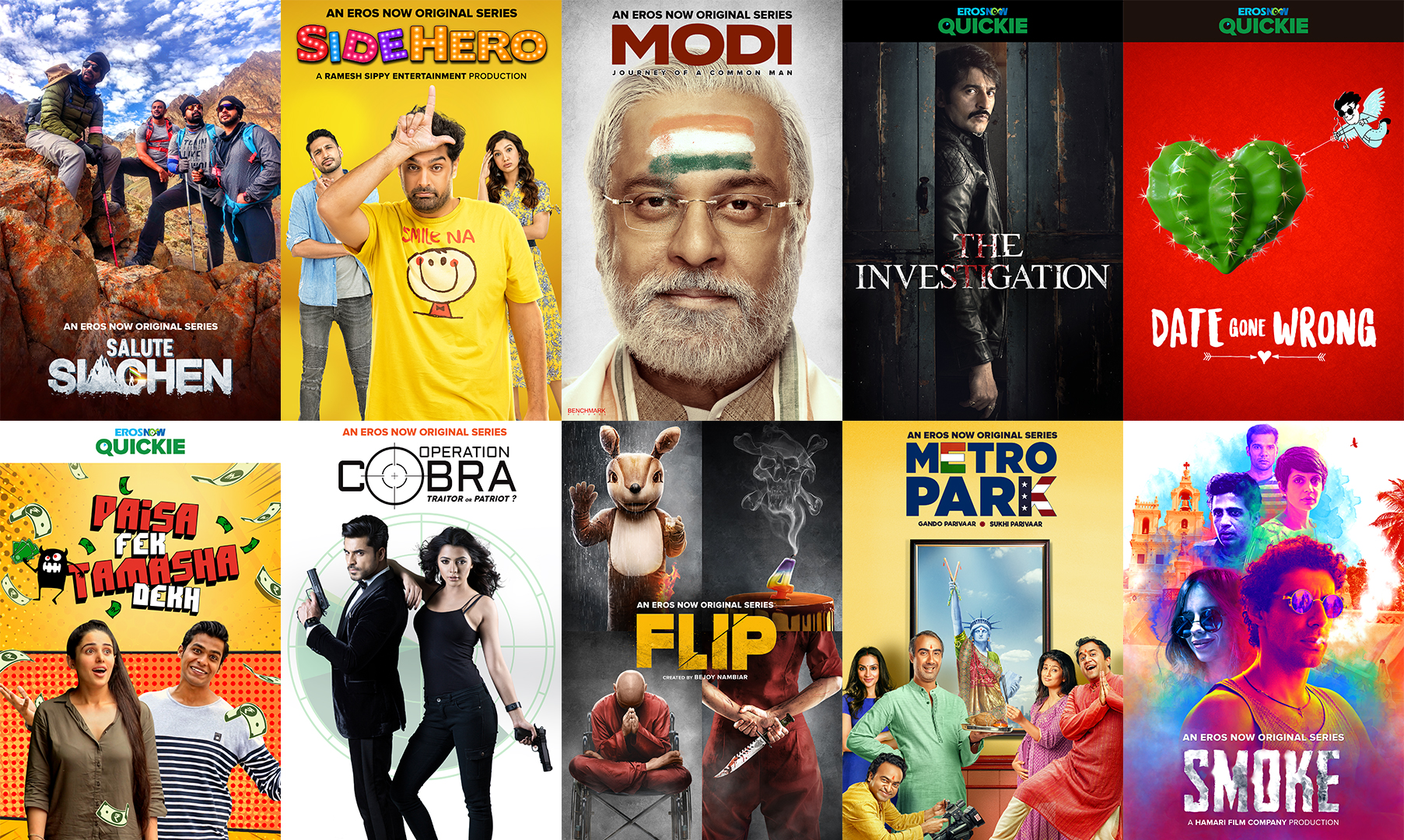Being on the cutting edge of technology was baked into the DNA of Indian video company Eros Now from the start.
Its parent company, Eros International Plc., was founded in 1977, the same year the VHS videocassette format was released in North America. While some in the entertainment industry were leery about the newfangled technology, Eros was all in.
“Back then, it was a scary thing,” says Eros Digital CEO Rishika Lulla Singh. “But we embraced VHS and we continued to embrace new technology.”
That approach has served the company well. Eros International Plc., a movie distribution and production company, was India’s first VHS distributor and the first Indian media company listed on the New York Stock Exchange.
Eros Now, its on-demand video arm, was launched in 2012 and has now attracted over 18.8 million paid subscribers and 155 million users worldwide with its more than 12,000 Bollywood films, music videos and original content including series and short episodes.
Eros Now amassed its big audience largely by premiering blockbuster films and related content such as trailers and music videos on its site even before they were on YouTube, Lulla Singh says. The company aims to differentiate itself not just as a one-stop destination for online entertainment but also as a tech innovator — and a new collaboration with Microsoft is underpinning those efforts.

Eros Digital CEO Rishika Lulla Singh.
Eros Now is working with Microsoft to migrate the company’s operations to the Azure cloud platform to improve video and viewing experiences for consumers worldwide. Lulla Singh says Microsoft’s ability to innovate in cloud computing and artificial intelligence, its research in voice services and discovery, and the company’s capacity for handling big data were the primary reasons Eros Now wanted to collaborate with Microsoft to develop next-generation video technology.
“We feel that Azure can help us to drive a lot of our ambitions to create the correct architecture for the video platform,” she says. “It was the sheer sophistication of the product over everything else on the market.”
The collaboration, Microsoft’s first effort in India in streaming video, signifies a move into a thriving entertainment market. Streaming video is growing rapidly in India, where the market is projected to reach $5 billion by 2023, according to a study by The Boston Consulting Group.
“India is among the fastest-growing entertainment and media markets globally, with cutting-edge innovation in content creation, distribution and data insights ,” says Anant Maheshwari, president of Microsoft India. “Our partnership with Eros Now is a significant milestone. Together, we hope to redefine the video viewing experience for consumers in India and across the globe.”
Lulla Singh has been working with teams across Microsoft and says she’s been struck by the company’s collaborative culture.
“Microsoft wants to enable other companies to be cool and to essentially realize your own ambition. The collaboration that’s come from that is incredible,” she says.
The rise in video streaming has shifted consumer expectations and the role of companies like Microsoft in the industry. Consumers are watching content on multiple devices, from smartphones to tablets, and media companies are facing increased competition to attract viewers, Maheshwari says. Those companies are looking to cloud providers for secure and scalable content delivery, he says, and for capabilities such as advanced search and smart content recommendations.
“What will differentiate video streaming services is the ability to give users exciting content to experience within the limited time and attention span they have,” he says. “AI and intelligent cloud tools will be the next drivers of the media business and will impact everything in the content value chain.”
Eros Now, Lulla Singh says, saw an opportunity to distinguish itself by creating original content that was a departure from the typical Indian television fare.
“The television landscape in India is very, very different to what happens in the U.S., where we have ‘Game of Thrones’ and a lot of sexy content,” she says. “That doesn’t really exist in the Indian television ecosystem.
“Most Indian programming is catered to more older audiences, which is actually not relevant to the new millennial audiences.”
Eros Now began developing its own original content around 2015, launching “Side Hero,” a Bollywood-inspired comedy series, last year, followed by “Smoke,” a drama about drug cartels. Last December, the company introduced “Eros Now Quickie,” a series of eight- to 10-minute episodes ranging from docudramas to comedy, and segments on food, health and travel.
Eros Now plans to continue innovating by personalizing content for customers by language, subtitles and other geographic-based preferences. Bollywood movies have been growing in popularity in regions outside India including China, Russia and Eastern Europe, Lulla Singh says. Eros Now, which currently has viewers in more than 135 countries, hopes to ride that momentum to expand into new markets and reach its goal of 50 million subscribers over the next three years.
“We just want to continue to create, continue to please our customers and grow in the process as well,” she says.
Top image: A sampling of Eros Now’s original content, which began premiering in 2018. (Images courtesy of Eros Now)

